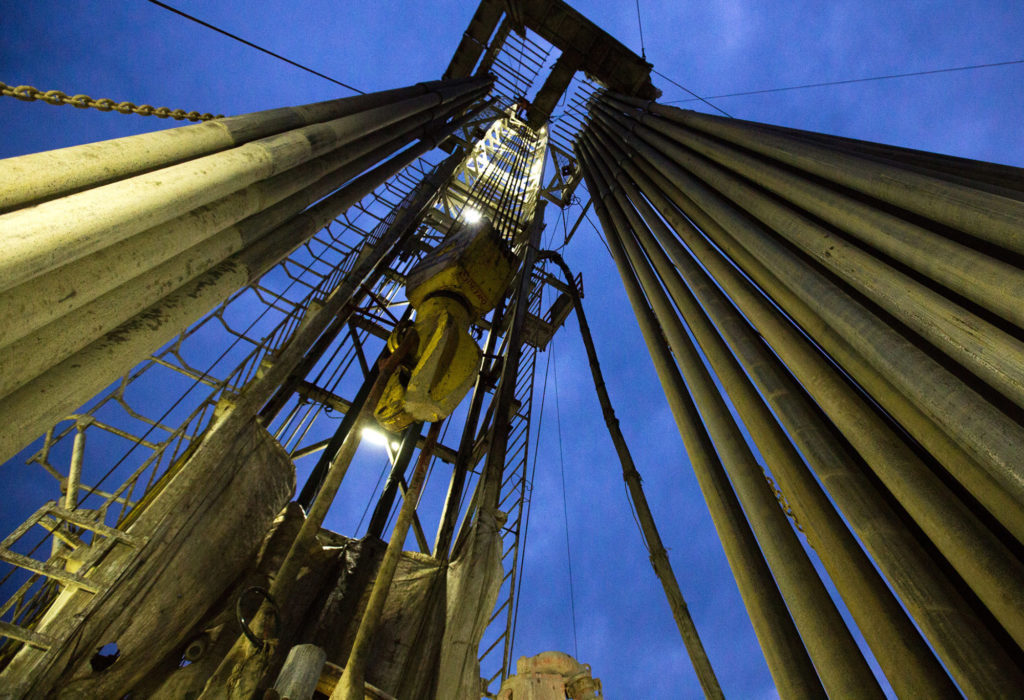
Iraq sees a need to increase crude exports and says it’s ready to ship more as soon as OPEC agrees how members will share a collective supply boost, according to the acting director-general of the state-run Oil Marketing Co.
Exports will be close to 3.595 million barrels a day this month, Alaa Al-Yasiri said Wednesday in an interview in Baghdad. That would be a record, he said, up from 3.54 million barrels a day in July.
The Organization of Petroleum Exporting Countries and allies agreed two months ago to increase oil production, with Saudi Arabia and Russia saying about 1 million barrels a day will be added to the market. But they didn’t detail how the production increase would be split between OPEC and non-OPEC nations. A committee of OPEC and allies is scheduled to meet in Algeria next month to discuss allocations.
“If decisions are made that the market is in need of quantities — and our conviction as marketer is that the market is in need of quantities — then Iraq will have the ability to raise,” Al-Yasiri said. Saudi Arabia and Russia have recently increased crude supplies but it hasn’t affected the market because customers needed the extra barrels, he said.
Shell’s Exit
Analysts have been uncertain about Iraq’s ability to raise production quickly, amid investment constraints and hold-ups that have seen Royal Dutch Shell Plc exit one of the country’s biggest oil projects.
While the International Energy Agency estimates that Iraq sits on about 240,000 barrels a day of unused capacity, much of this is offline because of a political dispute between the central government in Baghdad and Kurds in the north, and restarting it would require some kind of compromise.
An export increase from Iraq could have an impact on relations with its neighbor and fellow OPEC member Iran.
The Islamic Republic is seeing customers abandon its crude in the face of renewed U.S. sanctions, and analysts consider Iraqi supplies as a suitable replacement because of its similar characteristics. But Iran has criticized fellow producers seeking to take its market share for undermining unity among OPEC nations.
“SOMO doesn’t have a goal to take others’ clients,” Al-Yasiri said. Asked if Iraq will try to fill in for sales lost by Iran because of sanctions, he said: “Iraq rejects this principle. The principle of hunting opportunities. There should be a unifying decision for all the countries under the umbrella of OPEC.”
Also from the interview:
Iraq has temporarily halted a Kirkuk oil swap with Iran because of a “problem with Iraqi customs.” Iraq had been exporting oil by truck to Iran’s refinery in Kermanshah and receiving the same amounts from Iran Iraq is seeking to resume crude exports to Jordan, and has invited the energy minister in for talks. Iraq will discuss resuming the shipment of 10,000 to 15,000 barrels a day via truck. Shipments were halted in early 2014 due to security conditions in Iraq. The Trade Bank of Iraq is helping SOMO study the possibility of starting a hedging program on oil sales; a final decision would be up to lawmakers “Many bids” were received to build a pipeline from Kirkuk to Turkey, and the project is in the “stage of awarding” If Baghdad were to combine Kirkuk oil exports with the Kurdish region using the existing Ceyhan pipeline, shipments would be 500,000 to 550,000 barrels a day; Kurdish region oil exports are currently 250,000 to 300,000 barrels a day
Recommended for you
